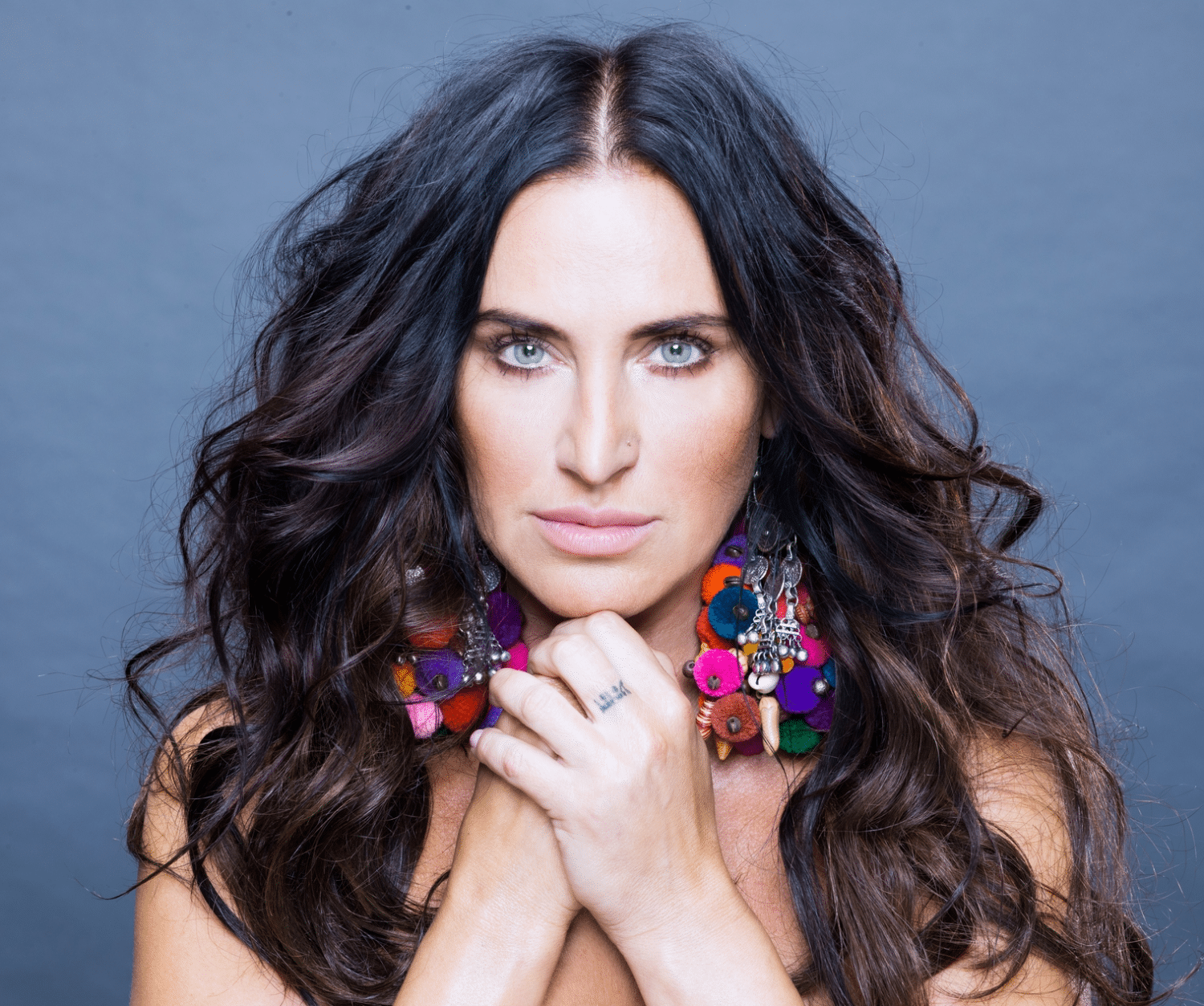Katarzyna Magdalena Szczot, known by her stage name Kayah, is a Polish singer-songwriter and co-owner of the record company Makers Production & Publishing, which specialized in working with up-and-coming Polish artists.
Having borrowed from multiple music styles including Slavic, gypsy, jazz, soul, pop, and dance, Kayah has cumulatively sold more than one million copies of her ten studio albums and is one of the most awarded artists by the Polish music industry.
Born in Warsaw, 1967, Kayah sang in choirs and recorded backup vocals for various bands in her youth. She began her solo career with the song “Córeczko” (Little Daughter) in 1988 at the National Festival of Polish Song in Opole, and subsequently released her first full-length self-titled album. It was a commercial and artistic disappointment and is omitted from Kayah’s official discography. Undeterred, she released Kamień, her first self-composed album, in 1995, which received a Fryderyk Award.
Kayah established herself in the Polish music industry with Zebra (1997) and Kayah i Bregović (1999), winning three Fryderyks for the former and yet another for the latter, a collaboration with Yugoslav composer Goran Bregović that proved to be one of the most popular Polish albums ever. The album was well-received overseas, even becoming a top ten seller in Italy.
Kayax, Kayah’s label under Makers Production & Publishing, was founded in 2001 with the help of her manager and longtime friend, Tomikiem Grewińskim. The label now features prominent Polish artists such as HEY, Nosowska, Skubas, and Patrick the Pan.
In May 2017, Kayah was to headline at the 50th anniversary of the state-run National Festival of Polish Music in Opole, but false reports claiming she had been barred from the event for taking part in anti-government demonstrations and speaking out against a government-endorsed bill banning abortion caused her to withdraw from the festival in solidarity with other artists who had been censored.
The number-one single from Kayah’s Zebra album, Na językach (“In Languages”):
Powiem wam, że kogoś znam
kogoś, kto zna ponoć jego samego
ten ktoś mi powiedział, że tamten powiedział
by on mi powiedział, żebym przyszła do niego
Uwierzyłam mu,
choć język ludzki czasem przypomina
psa, co zerwał się z łańcucha ciemną nocą
prawda z ust do ust jest całkiem inna,
bo nie ludzie słowa, ale słowa ludzi niosą
Ten ktoś ponoć słyszał, że ktoś inny słyszał
jak on mówił dzisiaj, że kocha ogromnie
ja pokochałam, lecz serce złamałam
bo wyszło na jaw, że chodzi nie o mnie
Uwierzyłam Mu,
choć język ludzki czasem przypomina
psa, co zerwał się z łańcucha ciemną nocą
prawda z ust do ust jest całkiem inna,
bo nie ludzie słowa, ale słowa ludzi niosą
Żadna plotka dziś już nie zaszkodzi
pamiętaj, to co mówią ci, przez dwa podziel
Ich język lata, lata jak łopata
ich język lata…
ich język lata, lata jak łopata
ich język lata…
ich język lata, wciąż lata jak łopata…
Ja nie wierzę już, nie, nie
język ludzki czasem przypomina
psa, co zerwał się z łańcucha ciemną nocą
prawda z ust do ust jest całkiem inna
bo nie ludzie słowa, ale słowa ludzi niosą
Kayah’s 2011 hit, Za późno (“Too Late”):
Jak cicho tu
I jak ciemno
Choć wciąż echo brzmi
Jednej z burz
Nie wiesz co
Nie wiesz kto zaczął to
Ale jedno już wiesz na pewno
Bolesnych zbyt wiele padło słów
Świat zostaw w tyle jeśli ona
Wszystkim jest co dziś masz
Zostaw świat nim się przekonasz,
Że bez niej nic nie jest wart
Świat zostaw za sobą
Dumę schowaj
Biegnij za nią co tchu
A kiedy dogonisz weź w ramiona
Zanim będzie już
Za późno
Za późno
Nie czas by stać patrzeć w niebo
I nie czas by wciąż szukać win
To nieważne kto właśnie
Popełnił dziś błąd
Ważne jest na pewno,
Że wybiegła już stąd
Trzasnęły za nią drzwi
Świat zostaw w tyle jeśli ona
Wszystkim jest co dziś masz
Zostaw świat nim się przekonasz,
Że bez niej nic nie jest wart
Świat zostaw za sobą
Dumę schowaj
Biegnij za nią co tchu
A kiedy dogonisz weź w ramiona
Zanim będzie już
Za późno
Za późno
Za późno
Za późno











